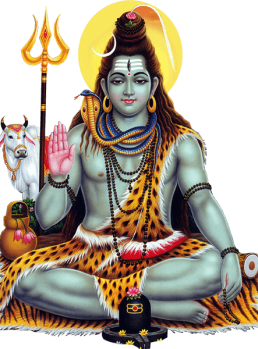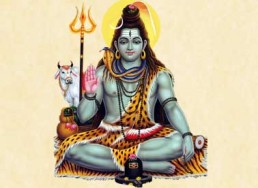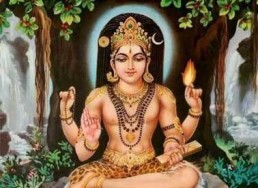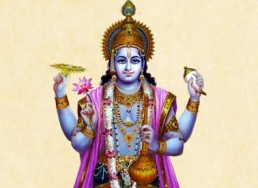Rudram Chamakam
Sri Rudram Chamakam Introduction
The Chamakam portion of the Sri Rudram is a powerful Vedic chant from the Krishna Yajurveda, complementing the Namakam. While the Namakam offers salutations to Lord Rudra, the Chamakam is a prayer for blessings, where the devotee asks for a series of material and spiritual boons. Each of the eleven anuvakas (sections) of the Chamakam lists desires ranging from essential needs like food, health, and wealth to more profound spiritual gains, such as knowledge, mental clarity, and self-realization. The repeated use of the word “cha me” (and for me) symbolizes a humble request for abundance and well-being in all aspects of life, aiming for the harmonious fulfillment of both worldly and divine aspirations. This makes the Chamakam a holistic prayer, seeking balance between the material and spiritual realms under the grace of Lord Shiva.
More information on the Chamakam can be found at the end of this page.
Sri Rudram Links on our site
Sri Rudram – Namakam – Chanting
Sri Rudram – Namakam – Translation & Meaning
Sri Rudram – Chamakam – Chanting
Sri Rudram – Chamakam – Translation & Meaning
Sri Rudram – Laghunyasam – Chanting
Sri Rudram – Laghunyasam – Translation & Meaning
ॐ अग्ना॑विष्णो स॒जोष॑से॒माव॑र्धन्तु वा॒-ङ्गिरः॑ ।
द्यु॒म्नैर्वाजे॑भि॒राग॑तम् ।
वाज॑श्च मे प्रस॒वश्च॑ मे॒
प्रय॑तिश्च मे॒ प्रसि॑तिश्च मे
धी॒तिश्च॑ मे क्रतु॑श्च मे॒
स्वर॑श्च मे॒ श्लोक॑श्च मे
श्रा॒वश्च॑ मे॒ श्रुति॑श्च मे॒
ज्योति॑श्च मे॒ सुव॑श्च मे
प्रा॒णश्च॑ मे-ऽपा॒नश्च॑ मे
व्या॒नश्च॒ मे-ऽसु॑श्च मे
चि॒त्त-ञ्च॑ म॒ आधी॑त-ञ्च मे॒
वाक्च॑ मे॒ मन॑श्च मे॒
चक्षु॑श्च मे॒ श्रोत्र॑-ञ्च मे॒
दक्ष॑श्च मे॒ बल॑-ञ्च म॒
ओज॑श्च मे॒ सह॑श्च म॒
आयु॑श्च मे ज॒रा च॑ म
आ॒त्मा च॑ मे त॒नूश्च॑ मे॒
शर्म॑ च मे॒ वर्म॑ च॒ मे-ऽङ्गा॑नि च मे॒-ऽस्थानि॑ च मे॒
परूग्ं॑षि च मे॒ शरी॑राणि च मे ॥ १॥
ōṃ agnā̍viṣṇō sa̠jōṣa̍sē̠māva̍rdhantu vā̠-ṅgira̍ḥ ।
dyu̠mnairvājē̍bhi̠rāga̍tam ।
vāja̍ścha mē prasa̠vaścha̍ mē̠
praya̍tiścha mē̠ prasi̍tiścha mē
dhī̠tiścha̍ mē kratu̍ścha mē̠
svara̍ścha mē̠ ślōka̍ścha mē
śrā̠vaścha̍ mē̠ śruti̍ścha mē̠
jyōti̍ścha mē̠ suva̍ścha mē
prā̠ṇaścha̍ mē-‘pā̠naścha̍ mē
vyā̠naścha̠ mē-‘su̍ścha mē
chi̠tta-ñcha̍ ma̠ ādhī̍ta-ñcha mē̠
vākcha̍ mē̠ mana̍ścha mē̠
chakṣu̍ścha mē̠ śrōtra̍-ñcha mē̠
dakṣa̍ścha mē̠ bala̍-ñcha ma̠
ōja̍ścha mē̠ saha̍ścha ma̠
āyu̍ścha mē ja̠rā cha̍ ma
ā̠tmā cha̍ mē ta̠nūścha̍ mē̠
śarma̍ cha mē̠ varma̍ cha̠ mē-‘ṅgā̍ni cha mē̠-‘sthāni̍ cha mē̠
parūg̍ṃṣi cha mē̠ śarī̍rāṇi cha mē ..1..
म॒न्युश्च॑ मे॒ भाम॑श्च॒ मे-ऽम॑श्च॒ मे-ऽम्भ॑श्च मे
जे॒मा च॑ मे महि॒मा च॑ मे
वरि॒मा च॑ मे प्रथि॒मा च॑ मे
व॒र्ष्मा च॑ मे द्राघु॒या च॑ मे
वृ॒द्ध-ञ्च॑ मे॒ वृद्धि॑श्च मे
स॒त्य-ञ्च॑ मे श्र॒द्धा च॑ मे॒
जग॑च्च मे॒ धन॑-ञ्च मे॒
वश॑श्च मे॒ त्विषि॑श्च मे
क्री॒डा च॑ मे॒ मोद॑श्च मे
जा॒त-ञ्च॑ मे जनि॒ष्यमा॑ण-ञ्च मे
सू॒क्त-ञ्च॑ मे सुकृ॒त-ञ्च॑ मे
वि॒त्त-ञ्च॑ मे॒ वेद्य॑-ञ्च मे
भू॒त-ञ्च॑ मे भवि॒ष्यच्च॑ मे
सु॒ग-ञ्च॑ मे सु॒पथ॑-ञ्च म
ऋ॒द्ध-ञ्च॑ म ऋद्धि॑श्च मे
कॢ॒प्त-ञ्च॑ मे॒ कॢप्ति॑श्च मे
म॒तिश्च॑ मे सुम॒तिश्च॑ मे ॥ २॥
ma̠nyuścha̍ mē̠ bhāma̍ścha̠ mē-‘ma̍ścha̠ mē-‘mbha̍ścha mē
jē̠mā cha̍ mē mahi̠mā cha̍ mē
vari̠mā cha̍ mē prathi̠mā cha̍ mē
va̠rṣmā cha̍ mē drāghu̠yā cha̍ mē
vṛ̠ddha-ñcha̍ mē̠ vṛddhi̍ścha mē
sa̠tya-ñcha̍ mē śra̠ddhā cha̍ mē̠
jaga̍chcha mē̠ dhana̍-ñcha mē̠
vaśa̍ścha mē̠ tviṣi̍ścha mē
krī̠ḍā cha̍ mē̠ mōda̍ścha mē
jā̠ta-ñcha̍ mē jani̠ṣyamā̍ṇa-ñcha mē
sū̠kta-ñcha̍ mē sukṛ̠ta-ñcha̍ mē
vi̠tta-ñcha̍ mē̠ vēdya̍-ñcha mē
bhū̠ta-ñcha̍ mē bhavi̠ṣyachcha̍ mē
su̠ga-ñcha̍ mē su̠patha̍-ñcha ma
ṛ̠ddha-ñcha̍ ma ṛddhi̍ścha mē
kLi̠pta-ñcha̍ mē̠ kLipti̍ścha mē
ma̠tiścha̍ mē suma̠tiścha̍ mē ॥ 2 ॥
प्रि॒य-ञ्च॑ मे-ऽनुका॒मश्च॑ मे॒ काम॑श्च मे
सौमनस॒श्च॑ मे भ॒द्र-ञ्च॑ मे॒
श्रेय॑श्च मे॒ वस्य॑श्च मे॒
यश॑श्च मे॒ भग॑श्च मे॒ द्रवि॑ण-ञ्च मे
य॒न्ता च॑ मे ध॒र्ता च॑ मे॒
क्षेम॑श्च मे॒ धृति॑श्च मे॒
विश्व॑-ञ्च मे॒ मह॑श्च मे
सं॒विँच्च॑ मे॒ ज्ञात्र॑-ञ्च मे॒
सूश्च॑ मे प्र॒सूश्च॑ मे॒
सीर॑-ञ्च मे ल॒यश्च॑ म
ऋ॒त-ञ्च॑ मे॒-ऽमृत॑-ञ्च मे-ऽय॒क्ष्म-ञ्च॒ मे-ऽना॑मयच्च मे
जी॒वातु॑श्च मे दीर्घायु॒त्व-ञ्च॑ मे-ऽनमि॒त्र-ञ्च॒ मे-ऽभ॑य-ञ्च मे
सु॒ग-ञ्च॑ मे॒ शय॑न-ञ्च मे
सू॒षा च॑ मे सु॒दिन॑-ञ्च मे ॥ ३॥
pri̠ya-ñcha̍ mē-‘nukā̠maścha̍ mē̠ kāma̍ścha mē
saumanasa̠ścha̍ mē bha̠dra-ñcha̍ mē̠
śrēya̍ścha mē̠ vasya̍ścha mē̠
yaśa̍ścha mē̠ bhaga̍ścha mē̠ dravi̍ṇa-ñcha mē
ya̠ntā cha̍ mē dha̠rtā cha̍ mē̠
kṣēma̍ścha mē̠ dhṛti̍ścha mē̠
viśva̍-ñcha mē̠ maha̍ścha mē
sa̠ṃvichcha̍ mē̠ jñātra̍-ñcha mē̠
sūścha̍ mē pra̠sūścha̍ mē̠
sīra̍-ñcha mē la̠yaścha̍ ma
ṛ̠ta-ñcha̍ mē̠-‘mṛta̍-ñcha mē-‘ya̠kṣma-ñcha̠ mē-‘nā̍mayachcha mē
jī̠vātu̍ścha mē dīrghāyu̠tva-ñcha̍ mē-‘nami̠tra-ñcha̠ mē-‘bha̍ya-ñcha mē
su̠ga-ñcha̍ mē̠ śaya̍na-ñcha mē
sū̠ṣā cha̍ mē su̠dina̍-ñcha mē ॥ 3 ॥
पय॑श्च मे॒ रस॑श्च मे
घृ॒त-ञ्च॑ मे॒ मधु॑ च मे॒
सग्धि॑श्च मे॒ सपी॑तिश्च मे
कृ॒षिश्च॑ मे॒ वृष्टि॑श्च मे॒
जैत्र॑-ञ्च म॒ औद्भि॑द्य-ञ्च मे
र॒यिश्च॑ मे॒ राय॑श्च मे
पु॒ष्ट-ञ्च मे॒ पुष्टि॑श्च मे
वि॒भु च॑ मे प्र॒भु च॑ मे
ब॒हु च॑ मे॒ भूय॑श्च मे
पू॒र्ण-ञ्च॑ मे पू॒र्णत॑र-ञ्च॒ मे-ऽक्षि॑तिश्च मे॒ कूय॑वाश्च॒ मे-ऽन्न॑-ञ्च॒ मे-ऽक्षु॑च्च मे
व्री॒हय॑श्च मे॒ यवा᳚श्च मे॒
माषा᳚श्च मे॒ तिला᳚श्च मे
मु॒द्गाश्च॑ मे ख॒ल्वा᳚श्च मे
गो॒धूमा᳚श्च मे म॒सुरा᳚श्च मे
प्रि॒यङ्ग॑वश्च॒ मे-ऽण॑वश्च मे
श्या॒माका᳚श्च मे नी॒वारा᳚श्च मे ॥ ४॥
paya̍ścha mē̠ rasa̍ścha mē
ghṛ̠ta-ñcha̍ mē̠ madhu̍ cha mē̠
sagdhi̍ścha mē̠ sapī̍tiścha mē
kṛ̠ṣiścha̍ mē̠ vṛṣṭi̍ścha mē̠
jaitra̍-ñcha ma̠ audbhi̍dya-ñcha mē
ra̠yiścha̍ mē̠ rāya̍ścha mē
pu̠ṣṭa-ñcha mē̠ puṣṭi̍ścha mē
vi̠bhu cha̍ mē pra̠bhu cha̍ mē
ba̠hu cha̍ mē̠ bhūya̍ścha mē
pū̠rṇa-ñcha̍ mē pū̠rṇata̍ra-ñcha̠ mē-‘kṣi̍tiścha mē̠ kūya̍vāścha̠ mē-‘nna̍-ñcha̠ mē-‘kṣu̍chcha mē
vrī̠haya̍ścha mē̠ yavā̎ścha mē̠
māṣā̎ścha mē̠ tilā̎ścha mē
mu̠dgāścha̍ mē kha̠lvā̎ścha mē
gō̠dhūmā̎ścha mē ma̠surā̎ścha mē
pri̠yaṅga̍vaścha̠ mē-‘ṇa̍vaścha mē
śyā̠mākā̎ścha mē nī̠vārā̎ścha mē ॥ 4 ॥
गि॒रय॑श्च मे॒ पर्व॑ताश्च मे॒
सिक॑ताश्च मे॒ वन॒स्पत॑यश्च मे॒
हिर॑ण्य-ञ्च॒ मे-ऽय॑श्च मे॒
सीस॑-ञ्च॒ मे त्रपु॑श्च मे
श्या॒म-ञ्च॑ मे लो॒ह-ञ्च॑ मे-ऽग्निश्च॑ म
आप॑श्च मे वी॒रुध॑श्च म॒ ओष॑धयश्च मे
कृष्टप॒च्य-ञ्च॑ मे-ऽकृष्टपच्य-ञ्च॑ मे
ग्रा॒म्याश्च॑ मे प॒शव॑ आर॒ण्याश्च॑ य॒ज्ञेन॑ कल्पन्तां
वि॒त्त-ञ्च॑ मे॒ वित्ति॑श्च मे
भू॒त-ञ्च॑ मे॒ भूति॑श्च मे॒
वसु॑ च मे वस॒तिश्च॑ मे॒
कर्म॑ च मे॒ शक्ति॑श्च॒ मे-ऽर्थ॑श्च म॒
एम॑श्च म इति॑श्च मे॒ गति॑श्च मे ॥ ५॥
gi̠raya̍ścha mē̠ parva̍tāścha mē̠
sika̍tāścha mē̠ vana̠spata̍yaścha mē̠
hira̍ṇya-ñcha̠ mē-‘ya̍ścha mē̠
sīsa̍-ñcha̠ mē trapu̍ścha mē
śyā̠ma-ñcha̍ mē lō̠ha-ñcha̍ mē-‘gniścha̍ ma
āpa̍ścha mē vī̠rudha̍ścha ma̠ ōṣa̍dhayaścha mē
kṛṣṭapa̠chya-ñcha̍ mē-‘kṛṣṭapachya-ñcha̍ mē
grā̠myāścha̍ mē pa̠śava̍ āra̠ṇyāścha̍ ya̠jñēna̍ kalpantāṃ
vi̠tta-ñcha̍ mē̠ vitti̍ścha mē
bhū̠ta-ñcha̍ mē̠ bhūti̍ścha mē̠
vasu̍ cha mē vasa̠tiścha̍ mē̠
karma̍ cha mē̠ śakti̍ścha̠ mē-‘rtha̍ścha ma̠
ēma̍ścha ma iti̍ścha mē̠ gati̍ścha mē ॥ 5 ॥
सोम॑श्च म॒ इन्द्र॑श्च मे
सवि॒ता च॑ म॒ इन्द्र॑श्च मे॒
सर॑स्वती च म॒ इन्द्र॑श्च मे
पू॒षा च॑ म॒ इन्द्र॑श्च मे॒
बृह॒स्पति॑श्च म॒ इन्द्र॑श्च मे
मि॒त्रश्च॑ म॒ इन्द्र॑श्च मे॒
वरु॑णश्च म॒ इन्द्र॑श्च मे॒
त्वष्ठा॑ च म॒ इन्द्र॑श्च मे
धा॒ता च॑ म॒ इन्द्र॑श्च मे॒
विष्णु॑श्च म॒ इन्द्र॑श्च मे-ऽश्विनौ॑ च म॒ इन्द्र॑श्च मे
म॒रुत॑श्च म॒ इन्द्र॑श्च मे॒
विश्वे॑ च मे दे॒वा इन्द्र॑श्च मे
पृथि॒वी च॑ म॒ इन्द्र॑श्च मे-ऽन्तरि॑क्ष-ञ्च म॒ इन्द्र॑श्च मे
द्यौश्च॑ म॒ इन्द्र॑श्च मे॒
दिश॑श्च म॒ इन्द्र॑श्च मे
मू॒र्धा च॑ म॒ इन्द्र॑श्च मे
प्र॒जाप॑तिश्च म॒ इन्द्र॑श्च मे ॥ ६॥
sōma̍ścha ma̠ indra̍ścha mē
savi̠tā cha̍ ma̠ indra̍ścha mē̠
sara̍svatī cha ma̠ indra̍ścha mē
pū̠ṣā cha̍ ma̠ indra̍ścha mē̠
bṛha̠spati̍ścha ma̠ indra̍ścha mē
mi̠traścha̍ ma̠ indra̍ścha mē̠
varu̍ṇaścha ma̠ indra̍ścha mē̠
tvaṣṭhā̍ cha ma̠ indra̍ścha mē
dhā̠tā cha̍ ma̠ indra̍ścha mē̠
viṣṇu̍ścha ma̠ indra̍ścha mē-‘śvinau̍ cha ma̠ indra̍ścha mē
ma̠ruta̍ścha ma̠ indra̍ścha mē̠
viśvē̍ cha mē dē̠vā indra̍ścha mē
pṛthi̠vī cha̍ ma̠ indra̍ścha mē-‘ntari̍kṣa-ñcha ma̠ indra̍ścha mē
dyauścha̍ ma̠ indra̍ścha mē̠
diśa̍ścha ma̠ indra̍ścha mē
mū̠rdhā cha̍ ma̠ indra̍ścha mē
pra̠jāpa̍tiścha ma̠ indra̍ścha mē ॥ 6 ॥
उपा॒ग्ं॒शुश्च॑ मे-ऽन्तर्या॒मश्च॑ म
ऐन्द्रवाय॒वश्च॑ मे मैत्रावरु॒णश्च॑ म
आश्वि॒नश्च॑ मे प्रतिप्र॒स्थान॑श्च मे
शु॒क्रश्च॑ मे म॒न्थी च॑ म
आग्रय॒णश्च॑ मे वैश्वदे॒वश्च॑ मे
ध्रु॒वश्च॑ मे वैश्वान॒रश्च॑ म
ऋतुग्र॒हाश्च॑ मे-ऽतिग्रा॒ह्या᳚श्च म
ऐन्द्रा॒ग्नश्च॑ मे वैश्वदे॒वश्च॑ मे
मरुत्व॒तीया᳚श्च मे माहे॒न्द्रश्च॑ म
आदि॒त्यश्च॑ मे सावि॒त्रश्च॑ मे
सारस्व॒तश्च॑ मे पौ॒ष्णश्च॑ मे
पात्नीव॒तश्च॑ मे हारियोज॒नश्च॑ मे ॥ ७॥
upā̠gṃ̠śuścha̍ mē-‘ntaryā̠maścha̍ ma
aindravāya̠vaścha̍ mē maitrāvaru̠ṇaścha̍ ma
āśvi̠naścha̍ mē pratipra̠sthāna̍ścha mē
śu̠kraścha̍ mē ma̠nthī cha̍ ma
āgraya̠ṇaścha̍ mē vaiśvadē̠vaścha̍ mē
dhru̠vaścha̍ mē vaiśvāna̠raścha̍ ma
ṛtugra̠hāścha̍ mē-‘tigrā̠hyā̎ścha ma
aindrā̠gnaścha̍ mē vaiśvadē̠vaścha̍ mē
marutva̠tīyā̎ścha mē māhē̠ndraścha̍ ma
ādi̠tyaścha̍ mē sāvi̠traścha̍ mē
sārasva̠taścha̍ mē pau̠ṣṇaścha̍ mē
pātnīva̠taścha̍ mē hāriyōja̠naścha̍ mē ॥ 7 ॥
वेदि॑श्च मे॒ दिष्णि॑याश्च मे॒
स्रुच॑श्च मे चम॒साश्च॑ मे॒
ग्रावा॑णश्च मे॒ स्वर॑वश्च म
उपर॒वाश्च॑ मे-ऽधि॒षव॑णे च मे
द्रोणकल॒शश्च॑ मे वाय॒व्या॑नि च मे
पूत॒भृच्च॑ म आधव॒नीय॑श्च म॒
आग्नी᳚ध्र-ञ्च मे हवि॒र्धान॑-ञ्च मे
गृ॒हाश्च॑ मे॒ सद॑श्च मे पुरो॒डाशा᳚श्च मे
पच॒ताश्च॑ मे-ऽवभृथश्च॑ मे स्वगाका॒रश्च॑ मे ॥ ८॥
vēdi̍ścha mē̠ diṣṇi̍yāścha mē̠
srucha̍ścha mē chama̠sāścha̍ mē̠
grāvā̍ṇaścha mē̠ svara̍vaścha ma
upara̠vāścha̍ mē-‘dhi̠ṣava̍ṇē cha mē
drōṇakala̠śaścha̍ mē vāya̠vyā̍ni cha mē
pūta̠bhṛchcha̍ ma ādhava̠nīya̍ścha ma̠
āgnī̎dhra-ñcha mē havi̠rdhāna̍-ñcha mē
gṛ̠hāścha̍ mē̠ sada̍ścha mē purō̠ḍāśā̎ścha mē
pacha̠tāścha̍ mē-‘vabhṛthaścha̍ mē svagākā̠raścha̍ mē ॥ 8 ॥
सूर्य॑श्च मे प्रा॒णश्च॑ मे-ऽश्वमे॒धश्च॑ मे
पृथि॒वी च॒ मे-ऽदि॑तिश्च मे॒ दिति॑श्च मे॒
द्यौश्च॑ मे॒ शक्व॑रीर॒ङ्गुल॑यो॒ दिश॑श्च मे
य॒ज्ञेन॑ कल्पन्ता॒मृक्च॑ मे॒
साम॑ च मे॒ स्तोम॑श्च मे॒
यजु॑श्च मे दी॒क्षा च॑ मे॒
तप॑श्च म ऋ॒तुश्च॑ मे
व्र॒त-ञ्च॑ मे-ऽहोरा॒त्रयो᳚र्वृ॒ष्ट्या बृ॑हद्रथन्त॒रे च॒ मे
य॒ज्ञेन॑ कल्पेताम् ॥ ९॥
sūrya̍ścha mē prā̠ṇaścha̍ mē-‘śvamē̠dhaścha̍ mē
pṛthi̠vī cha̠ mē-‘di̍tiścha mē̠ diti̍ścha mē̠
dyauścha̍ mē̠ śakva̍rīra̠ṅgula̍yō̠ diśa̍ścha mē
ya̠jñēna̍ kalpantā̠mṛkcha̍ mē̠
sāma̍ cha mē̠ stōma̍ścha mē̠
yaju̍ścha mē dī̠kṣā cha̍ mē̠
tapa̍ścha ma ṛ̠tuścha̍ mē
vra̠ta-ñcha̍ mē-‘hōrā̠trayō̎rvṛ̠ṣṭyā bṛ̍hadrathanta̠rē cha̠ mē
ya̠jñēna̍ kalpētām ॥ 9 ॥
त्र्यवि॑श्च मे त्र्य॒वीच॑ मे
दित्य॒वाट् च॑ मे दित्यौ॒ही च॑ मे॒
पञ्चा॑विश्च मे पञ्चा॒वी च॑ मे
त्रिव॒त्सश्च॑ मे त्रिव॒त्सा च॑ मे
तुर्य॒वाट् च॑ मे तुर्यौ॒ही च॑ मे
पष्ठ॒वाट् च॑ मे पष्ठौ॒ही च॑ म
उ॒क्षा च॑ मे व॒शा च॑ म
ऋष॒भश्च॑ मे वे॒हच्च॑ मे-ऽन॒ड्वाञ्च मे
धे॒नुश्च॑ म॒ आयु॑र्य॒ज्ञेन॑ कल्पतां
प्रा॒णो य॒ज्ञेन॑ कल्पतामपा॒नो य॒ज्ञेन॑ कल्पतां॒
व्या॒नो य॒ज्ञेन॑ कल्पतां॒
चक्षु॑र्य॒ज्ञेन॑ कल्पता॒ग्॒ श्रोत्रं॑-यँ॒ज्ञेन॑ कल्पतां॒
मनो॑ य॒ज्ञेन॑ कल्पतां॒
वाग्य॒ज्ञेन॑ कल्पतामा॒त्मा य॒ज्ञेन॑ कल्पतां
य॒ज्ञो य॒ज्ञेन॑ कल्पताम् ॥ १०॥
tryavi̍ścha mē trya̠vīcha̍ mē
ditya̠vāṭ cha̍ mē dityau̠hī cha̍ mē̠
pañchā̍viścha mē pañchā̠vī cha̍ mē
triva̠tsaścha̍ mē triva̠tsā cha̍ mē
turya̠vāṭ cha̍ mē turyau̠hī cha̍ mē
paṣṭha̠vāṭ cha̍ mē paṣṭhau̠hī cha̍ ma
u̠kṣā cha̍ mē va̠śā cha̍ ma
ṛṣa̠bhaścha̍ mē vē̠hachcha̍ mē-‘na̠ḍvāñcha mē
dhē̠nuścha̍ ma̠ āyu̍rya̠jñēna̍ kalpatāṃ
prā̠ṇō ya̠jñēna̍ kalpatāmapā̠nō ya̠jñēna̍ kalpatā̠ṃ
vyā̠nō ya̠jñēna̍ kalpatā̠ṃ
chakṣu̍rya̠jñēna̍ kalpatā̠g̠ śrōtra̍ṃ ya̠jñēna̍ kalpatā̠ṃ
manō̍ ya̠jñēna̍ kalpatā̠ṃ
vāgya̠jñēna̍ kalpatāmā̠tmā ya̠jñēna̍ kalpatāṃ
ya̠jñō ya̠jñēna̍ kalpatām ॥ 10 ॥
पञ्च॑ च मे स॒प्त च॑ मे॒
नव॑ च म॒ एका॑दश च मे॒
त्रयो॑दश च मे॒ पञ्च॑दश च मे
स॒प्तद॑श च मे॒ नव॑दश च म॒
एक॑विग्ंशतिश्च मे॒ त्रयो॑विग्ंशतिश्च मे॒
पञ्च॑विग्ंशतिश्च मे स॒प्तविग्ं॑शतिश्च मे॒
नव॑विग्ंशतिश्च म॒ एक॑त्रिग्ंशच्च मे॒
त्रय॑स्त्रिग्ंशच्च मे॒ चत॑स्रश्च मे॒-ऽष्टौ च॑ मे॒
द्वाद॑श च मे॒ षोड॑श च मे
विग्ंश॒तिश्च॑ मे॒ चतु॑र्विग्ंशतिश्च मे॒-ऽष्टाविग्ं॑शतिश्च मे॒
द्वात्रिग्ं॑शच्च मे॒ षट्-त्रिग्ं॑शच्च मे
चत्वारि॒ग्ं॒शच्च॑ मे॒ चतु॑श्चत्वारिग्ंशच्च मे-ऽष्टाच॑त्वारिग्ंशच्च मे॒
वाज॑श्च प्रस॒वश्चा॑पि॒जश्च
क्रतु॑श्च॒ सुव॑श्च मू॒र्धा च॒
व्यश्नि॑यश्चान्त्याय॒नश्चान्त्य॑श्च
भौव॒नश्च॒ भुव॑न॒श्चाधि॑पतिश्च ॥ ११॥
pañcha̍ cha mē sa̠pta cha̍ mē̠
nava̍ cha ma̠ ēkā̍daśa cha mē̠
trayō̍daśa cha mē̠ pañcha̍daśa cha mē
sa̠ptada̍śa cha mē̠ nava̍daśa cha ma̠
ēka̍vigṃśatiścha mē̠ trayō̍vigṃśatiścha mē̠
pañcha̍vigṃśatiścha mē sa̠ptavig̍ṃśatiścha mē̠
nava̍vigṃśatiścha ma̠ ēka̍trigṃśachcha mē̠
traya̍strigṃśachcha mē̠ chata̍sraścha mē̠-‘ṣṭau cha̍ mē̠
dvāda̍śa cha mē̠ ṣōḍa̍śa cha mē
vigṃśa̠tiścha̍ mē̠ chatu̍rvigṃśatiścha mē̠-‘ṣṭāvig̍ṃśatiścha mē̠
dvātrig̍ṃśachcha mē̠ ṣaṭ-trig̍ṃśachcha mē
chatvāri̠g̠ṃśachcha̍ mē̠ chatu̍śchatvārigṃśachcha mē-‘ṣṭācha̍tvārigṃśachcha mē̠
vāja̍ścha prasa̠vaśchā̍pi̠jaścha
kratu̍ścha̠ suva̍ścha mū̠rdhā cha̠
vyaśni̍yaśchāntyāya̠naśchāntya̍ścha
bhauva̠naścha̠ bhuva̍na̠śchādhi̍patiścha ॥ 11 ॥
शग्ंसिष॒द्विश्वे॑ दे॒वा-स्सू᳚क्त॒वाचः॒ पृथि॑विमात॒र्मा
मा॑ हिग्ंसी॒र्म॒धु॑ मनिष्ये॒ मधु॑ जनिष्ये॒
मधु॑ वक्ष्यामि॒ मधु॑ वदिष्यामि॒
मधु॑मती-न्दे॒वेभ्यो॒ वाच॒मुद्यासग्ंशुश्रूषे॒ण्या᳚म्
मनु॒ष्ये᳚भ्य॒स्तं
मा॑ दे॒वा अ॑वन्तु शो॒भायै॑ पि॒तरो-ऽनु॑मदन्तु ॥
ॐ शान्ति॒-श्शान्ति॒-श्शान्तिः॑ ॥
śagṃsiṣa̠dviśvē̍ dē̠vā-ssū̎kta̠vācha̠ḥ pṛthi̍vimāta̠rmā
mā̍ higṃsī̠rma̠dhu̍ maniṣyē̠ madhu̍ janiṣyē̠
madhu̍ vakṣyāmi̠ madhu̍ vadiṣyāmi̠
madhu̍matī-ndē̠vēbhyō̠ vācha̠mudyāsagṃśuśrūṣē̠ṇyā̎m
manu̠ṣyē̎bhya̠staṃ
mā̍ dē̠vā a̍vantu śō̠bhāyai̍ pi̠tarō-‘nu̍madantu ॥
ōṃ śānti̠-śśānti̠-śśānti̍ḥ ॥

Description
Sri Rudram – Chamakam
The Chamakam portion of the Sri Rudram is a profound and structured Vedic prayer that follows the Namakam, extending the worship of Lord Rudra (Shiva) by asking for blessings and the fulfillment of various needs. Unlike the Namakam, which focuses on offering salutations and acknowledging Rudra’s omnipresence, the Chamakam is an explicit request for both material and spiritual prosperity. It is composed of eleven anuvakas (sections), each making a series of requests through the repeated phrase “cha me” (“and for me”).
Chamakam comes from the repeated use of the phrase “Cha me” (च मे), which means “and for me.” The repeated “Cha me” symbolizes the devotee’s supplications or humble requests for abundance in all aspects of life.
The prayer begins with fundamental needs like food, water, strength, and health, and gradually progresses to more refined desires, such as knowledge, wisdom, mental peace, and spiritual enlightenment. The Chamakam envisions a life where the devotee’s material needs are met, allowing them to pursue higher spiritual goals without hindrance. It reflects a holistic worldview in Vedic thought, where material abundance (artha), physical well-being, and spiritual growth (moksha) are interrelated and equally important for a fulfilling life.
Each anuvaka builds upon the previous one, covering diverse aspects of life, including prosperity, happiness, power, harmony with nature, and personal growth. The chant asks not only for individual benefit but also for the well-being of society and the universe as a whole. By invoking both worldly and spiritual blessings, the Chamakam encapsulates the Vedic belief in balance between material existence and spiritual liberation, underlining the idea that the grace of Lord Shiva can provide fulfillment in both realms.
Other Shiva Shlokams
Aksharamalika Shiva Stotram
Also called the Shiva Akshara Mala Stotram, this is a very popular prayer addressed to Lord Shiva. Each verse starts in the order of alphabets in Sanskrit.
Anayasena Maranam
O Lord Shiva, please grant me a peaceful death without pain (Anasayena Maranam), a life without any trouble or dependence on others for my basic needs (Vina Dhainyena Jeevanam) and a life filled with
Ardha Narishvara Stotram
Shri Ardhanareeshwara Stotram was composed by Sri Adi Shankara bhagavatpada. Creator and Creation are One ~ Ardhanarishwara, composite of Shiva and Shakti together in one body.
Bhoothanath Ashtakam
The Bhoothanatha Ashtakam composed by Shri Krishnadasa is a devotional hymn that glorifies Lord Shiva in his form as Bhoothanatha, the Lord of all beings, spirits, and the cosmos.
Bilvashtakam
Composed by Sri Adi Shankaracharya, the famous Bilvashtakam extols the virtues of the Bilva leaf (also spelt Vilva, Bilwa) and Lord Shiva’s love for it. The following com
Bilvashtakam 14 Verses
Note: For the original version of Bilvashtakam please click here. Composed by Sri Adi Shankaracharya,
Chandrashekhara Ashtakam
Chandrashekhara Ashtakam is a divine hymn to praise God Shiva as Chandrasekhara, the lord who is adorned with moon on his head (Chandra – moon, Sekhar – crown) and to seek refuge from untimely death.
Dakshinamurthy Stotram
Shlokams,Sankara,Shiva,Dakshinamurthy
The Dakshinamurti Stotra is a Sanskrit religious hymn to Shiva by Sri Adi Shankaracharya. It explains the metaphysics of the universe in the frame of the tradition of Advaita V
Ishvaro Guru Atmeti
Shlokams,Shiva,Dakshinamurthy,Guru,Sankara
Salutations to Lord Dakshinamurti, who is all-pervasive like space but who appears (as though) divided as Lord, Guru, and the Self.
Kalabhairava Ashtakam
Composed by Sri Adi Shankaracharya. The hymn illustrates the personality of Kala Bhairava of Kashi, the God of Death(kala). Those who study these 8 verses on Kala Bhairava, which are enticing and whic
Karacharana Kritam
O Lord, kindly forgive all the wrong acts and omissions I have committed, whether I committed them knowingly or unknowingly, with my hands, feet, words, ears, eyes, or mind. Glory to you, Mahadeva, wh
Karpura Gauram
Pure white like camphor, an incarnation of compassion, the essence of worldly existence, whose garland is the king of serpents, always dwelling inside the lotus of the heart. I bow to Shiva and Shakti together
Kasi Viswanathashtakam
Composed by Sri Adi Sankaracharya in praise of Lord Shiva. That man who reads this octet with its meaning, which sings the praise of Shiva who is the lord of Varanasi, would get knowledge, wealth, gre
Lingashtakam
The Lingashtakam is one of the most popular Ashtakams(a Stotram with 8 verses) dedicated to Lord Shiva which praises Him in the abstract "Lingam" form.
Maha Shivaratri
Significance of Ganesh Puja, Vinayaka Chavithi or Chathurthi. See how to prepare for Ganesha Pooja, How to perform the Puja with Video instructions and enjoy Audio devotional songs, uninterrupted and without ads.
Mantra Pushpam
The Mantra Pushpam (literally translating to "Flower of Mantras") is a collection of sacred verses from the 10th chapter of Taittiriya Aranyaka of Krishna Yajur Veda. Each verse begins with an exploration of the relationship between the flower of…
Margabandhu Stotram
This great Stotra Rathna was written by Appayya Deekshitha(1520-1593). He was one of the great interpreter of Advaitha Sidhantha after Adi Sankara. This stotra is written in praise of the Lord Margaba
Mauna Vyakhya
Shlokams,Sankara,Shiva,Dakshinamurthy
I salute Sri Dakshinamurti, who is not subject to time, who makes known the truth of Brahman through the implied meaning of words, who is surrounded by disciples who are themselves Rishis and committe
Mruthyunjayaya Rudraya
Salutation to you Mrithyunjaya, Rudra, Nilakanta, Shambhu & the lord of immortals and this great lord of all beings.
Namaste astu bhagavan
Morning prayer. From Devi Mahatmyam. The Devi Mahatmyam is a Hindu religious text describing the Goddess as the supreme power and creator of the universe. It is part of the Markandeya Purana, and esti
Nidhaye Sarvavidyanam
Shlokams,Sankara,Shiva,Dakshinamurthy
Salutations to Sri Dakshinamurti, the reservoir of knowledge (the abode of all learning), the healer of all those who suffer from the disease of samsāra, and the teacher of the whole world.
Om Namah Pranavarthaya
Shlokams,Sankara,Shiva,Dakshinamurthy
Om. Salutation to the one who is the meaning of praņava, who is in the form of pure knowledge, who is taintless and who is free from any change. To that Sri Dakshinamurti, (my) salutations.
Om Namo Bhagavate Dakshinamurthaye
Shlokams,Sankara,Shiva,Dakshinamurthy
Om. Salutations to Bhagavan Dakshinamurti. (Oh Lord) Bless me with memory, the capacity to think properly, and clarity, wisdom.
Rudram Chamakam Meaning
The Chamakam portion of the Sri Rudram is a profound and structured Vedic prayer that follows the Namakam, extending the worship of Lord Rudra (Shiva) by asking for blessings and the fulfillment of various needs. Unlike the Namakam, which focuses on…
Rudram Laghunyasam
Laghunyasam is a preliminary Vedic chant traditionally recited before performing the Sri Rudram to purify and align the body, mind, and spirit with divine energy. The term "Nyasam" refers to a process of mentally assigning or dedicating various…
Rudram Laghunyasam Meaning
Laghunyasam is a preliminary Vedic chant traditionally recited before performing the Sri Rudram to purify and align the body, mind, and spirit with divine energy. The term "Nyasam" refers to a process of mentally assigning or dedicating various…
Rudram Namakam
The Namakam portion of the Sri Rudram, also known as the Rudra Prashna, is a profound and intricate Vedic hymn found in the Krishna Yajurveda, specifically within the Taittiriya Samhita (Book 4, Chapter 5). The term Namakam is derived from the…
Rudram Namakam Meaning
The Chamakam portion of the Sri Rudram is a profound and structured Vedic prayer that follows the Namakam, extending the worship of Lord Rudra (Shiva) by asking for blessings and the fulfillment of various needs. Unlike the Namakam, which focuses on…
Rudrashtakam
The famous Rudrashtakam extols the many qualities of Shiva. This is composed by Sri Goswami Tulsidas. Rudra is considered as the fearsome manifestation of Shiva. Rudrashtakam has its origins in the Ra
Shambu Devam Sakalajagatam
I sing in praise of God Shambhu, the Lord of all worlds, and the three-eyed one; the consort of Gauri, the grantor of happiness, blessings and gifts, the one with the moon as his crest-jewel.
Shambu Stuti
A stuti on lord Shiva composed by lord Rama himself. Lord Rama recites this at Rameshwaram when faced with the near impossibility of crossing the vast ocean to reach Lanka, he prayed intensly to Lord
Shiva Aparadha Kshamapana Stotram
The Śiva Aparādha Kṣamāpaṇa Stotram, or "Hymn of Forgiveness for Offenses to Lord Śiva," is a heartfelt composition by the revered philosopher and saint Śrī Ādi Śaṅkarācārya. T
Shiva Ashtakam
Composed by Adi Shankaracharya. This ashtakam is a descriptive salutation of the different attributes of Shiva. The great yogi who is referred to as Ardhanarishwara (the one who has included the femin
Shiva Mahimna Stotram
The Shiva Mahimna Stotra is very popular among the devotees of Lord Shiva and is considered one of the best among all Stotras (or Stutis) offered to Lord Shiva. The legend abou
Shiva Mahimna Stotram Meaning
The Shiva Mahimna Stotra is very popular among the devotees of Lord Shiva and is considered one of the best among all Stotras (or Stutis) offered to Lord Shiva. The legend abou
Shiva Manasa Puja
Sri Adi Shankaracharya composed this mantra for lord Shiva. Using this stotra, we can perform mental worship of Lord Shiva.
Shiva Panchakshara Stotram
The famous Shiva Panchakshara Stotram praises Shiva and the power of the five sacred syllables, na-ma-shi-va-ya.
Shiva Pratah Smaranam
This is a short and beautiful 'Three Shloka Prayer' that makes the start of the day full of energy and happiness. Composed by Sri Adi Shankaracharya.
Shiva Sahasranama Stotram
Also called the Shiva Akshara Mala Stotram, this is a very popular prayer addressed to Lord Shiva. Each verse starts in the order of alphabets in Sanskrit.
Shiva Shadakshara Stotram
In this Hexa-Syllabic Hymn, there is a single stanza mantra for each letter of Aum-Na-Ma-Shi-Va-Ya. This mantra is found in Rudrayamala Tantra text.
Shiva Tandava Stotram
Shiva Tandava Stotram The Shiva Tandava Stotram is a deeply powerful and rhythmic hymn that glorifies Lord Shiva's cosmic dance, known as the Tāṇḍava. It is traditiona
Tatpurushaya Vidmahe Rudra Gayatri Mantra
Om. May we know that Lord Isvara, for which may we meditate upon Mahadeva. May that Rudra impel us (towards him).
Tryambakam Yajamahe
We worship Lord Shiva the three-eyed one, the one who is the master of all senses and qualities and the one who is the sustainer of all growth. May he release us from the bondage of death, just as a r
Vagarthaviva Sampruktau
Kalidasa prays to the divine parents Paarvathi & Parameshwara who are inseparable like the word and its meaning, in order to guide him in acquiring the power of words and their meanings (literature) as he embarks on the Mahakavya, Raghuvamsa.
Vande Shambu Umapatim
I salute Shambu, Umapati, the preceptor (teacher) of devas, I salute the cause of the earth, I salute the one ornamented with the serpent, the wearer of the moon, I respect that master of all beings.
Vedasara Shiva Stava
Vedasara Shiva Stava: The Essence of Vedic Wisdom The Vedasara Shiva Stava is a beautiful 10-verse hymn written by Adi Shankaracharya in praise of Lord Shiva. The name
Rudram Chamakam – Shiva – Chamakam – Full text and lyrics with audio in Sanskrit, English, Telugu, Kannada, Tamil and more



